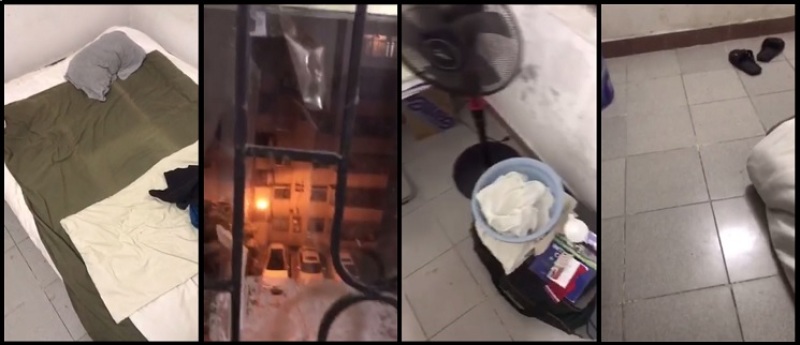
Jeff Harper was in Shenzhen in January 2020 for a basketball tournament when he got involved in an altercation with a Chinese man. The 33 year old professional American basketball player stepped in to defend a woman who was in an argument with the Chinese man and shoved him. Both walked away without any injuries but later that night, Chinese police arrested Harper after the Chinese man fell into a coma at a local hospital and died.
According to The Blaze, Harper was detained by Chinese authorities for up to eight months but it was only a couple of months into his detention that he was informed that the man he shoved had passed away. The basketball player was never formally charged with any crime, but was subjected to what is called "residential surveillance in a designated location."
"They do their justice system totally different than we do ours," Harper, who hails from Whiteville, Tennessee, told the Wall Street Journal. "I'm not a fan of it."
Residential surveillance in a designated location or RSDL as human rights groups call it, is described as a "frightening situation" in which captives are subjected to violence and are "cut off from lawyers and family." Harper experienced the exact same thing, wherein he was confined in what he described was a "residential building for police officers." In his solitary confinement room, he only had a rancid mattress and a plastic chair.
Harper was isolated to the point that he was unaware of the COVID pandemic. His only human interaction for eight months was with the Chinese guards and occasional phone calls to the U.S. and visits from a lawyer and the U.S. consular officials, but only after his girlfriend was able to locate him with his phone. To cope, the basketball player kept exercising, praying, and watching airplanes fly outside his window.
"Isolation is one of the hardest things for the human mind," Harper said. He was also fed little amounts of bug-infested rice over the course of eight months, causing him to lose over 40 lbs. As a detainee, he had to share bathrooms with the Chinese police, which he admitted "wasn't pleasant," SafeGuard Defenders reported. Harper only had hot water in a bucket for a shower, as running tap water came out brown and dirty. At night, he would finally be allowed to close his door but whenever he would get up, he could hear the Chinese police talking. The detention cell was also very hot and filled with mosquitoes. He was finally allowed to leave China in September of 2020.
According to WSJ, "residential surveillance in a designated location" is legal under Chinese law but "works outside China's formal judicial system." Under CCP law, authorities are allowed to detain a person for up to six months while an investigation is ongoing. Those who are found to have violations will later be placed in a traditional prison to wait for a formal trial.
Ironically, Beijing signed the U.N. human-rights conventions, but not without reservations. The communist state believes that while universal human rights should be respected, the "specific conditions of each country" must also be observed.



























